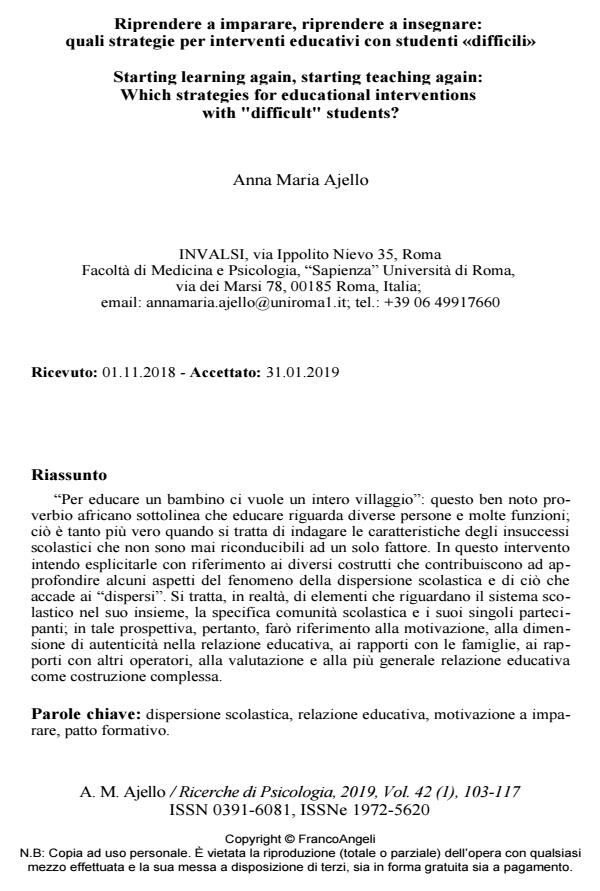Starting learning again, starting teaching again: Which strategies for educational interventions with "difficult" students?
Journal title RICERCHE DI PSICOLOGIA
Author/s Anna Maria Ajello
Publishing Year 2019 Issue 2019/1
Language Italian Pages 15 P. 103-117 File size 176 KB
DOI 10.3280/RIP2019-001007
DOI is like a bar code for intellectual property: to have more infomation
click here
Below, you can see the article first page
If you want to buy this article in PDF format, you can do it, following the instructions to buy download credits

FrancoAngeli is member of Publishers International Linking Association, Inc (PILA), a not-for-profit association which run the CrossRef service enabling links to and from online scholarly content.
"To educate a child it is necessary an entire village": this well-known African proverb emphasizes that educating regards different people and many functions. This is even more true when it comes to investigating the characteristics of school failures that can never be attributed to a single factor. In this paper, I intend to address them with reference to the different constructs that contribute to deepen some aspects of the phenomenon of school dispersion and of what happens to the "missing" students. In reality, these elements concern the school system as a whole, the specific scholastic community and its individual participants. In this perspective, therefore, I will refer to the motivation, to the dimension of authenti-city in the educational relationship, to the relationships with the families, to the relationships with other operators, to the evaluation and to the more general edu-cational relationship conceived as a complex construction.
Keywords: School dispersion, educational relationship, motivation to learn, educational agreement.
Anna Maria Ajello, Riprendere a imparare, riprendere a insegnare: quali strategie per interventi educativi con studenti «difficili» in "RICERCHE DI PSICOLOGIA " 1/2019, pp 103-117, DOI: 10.3280/RIP2019-001007